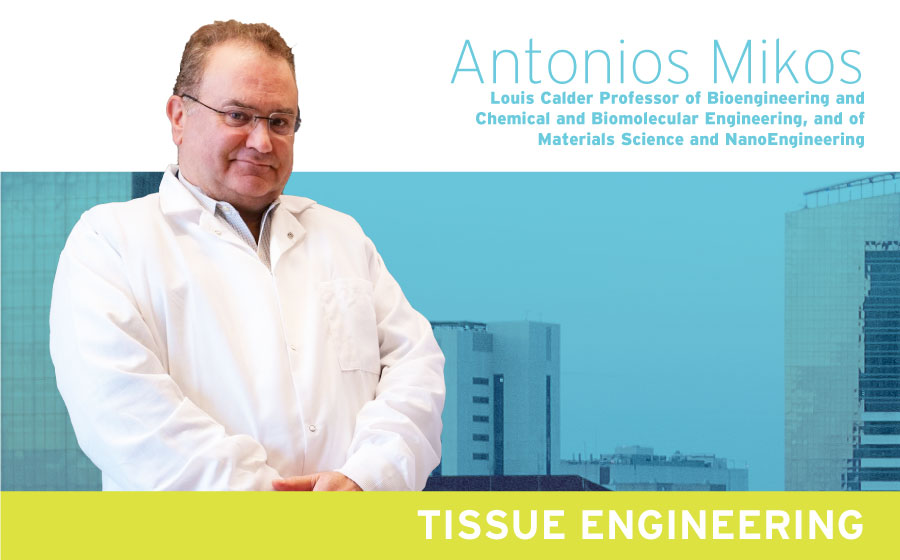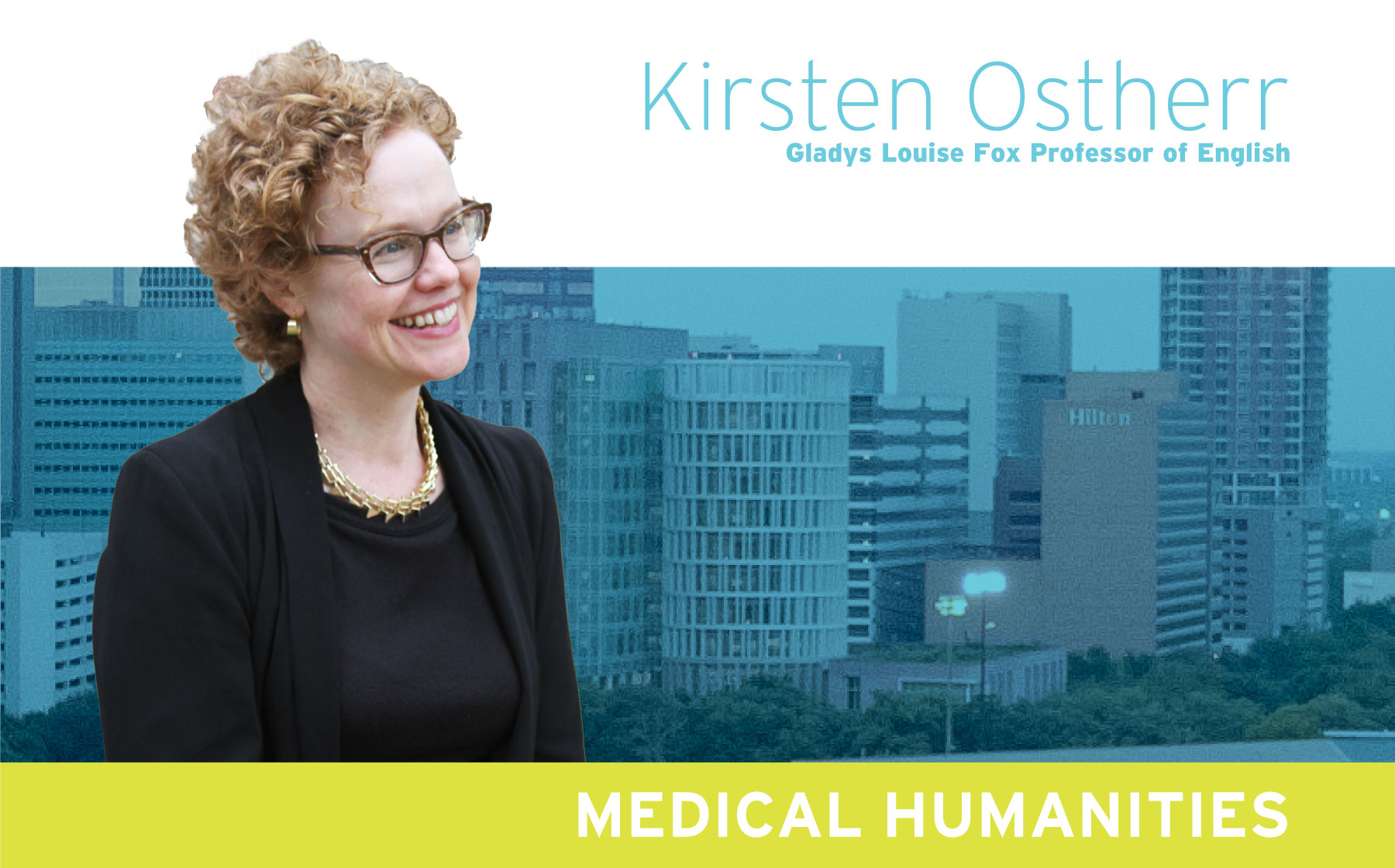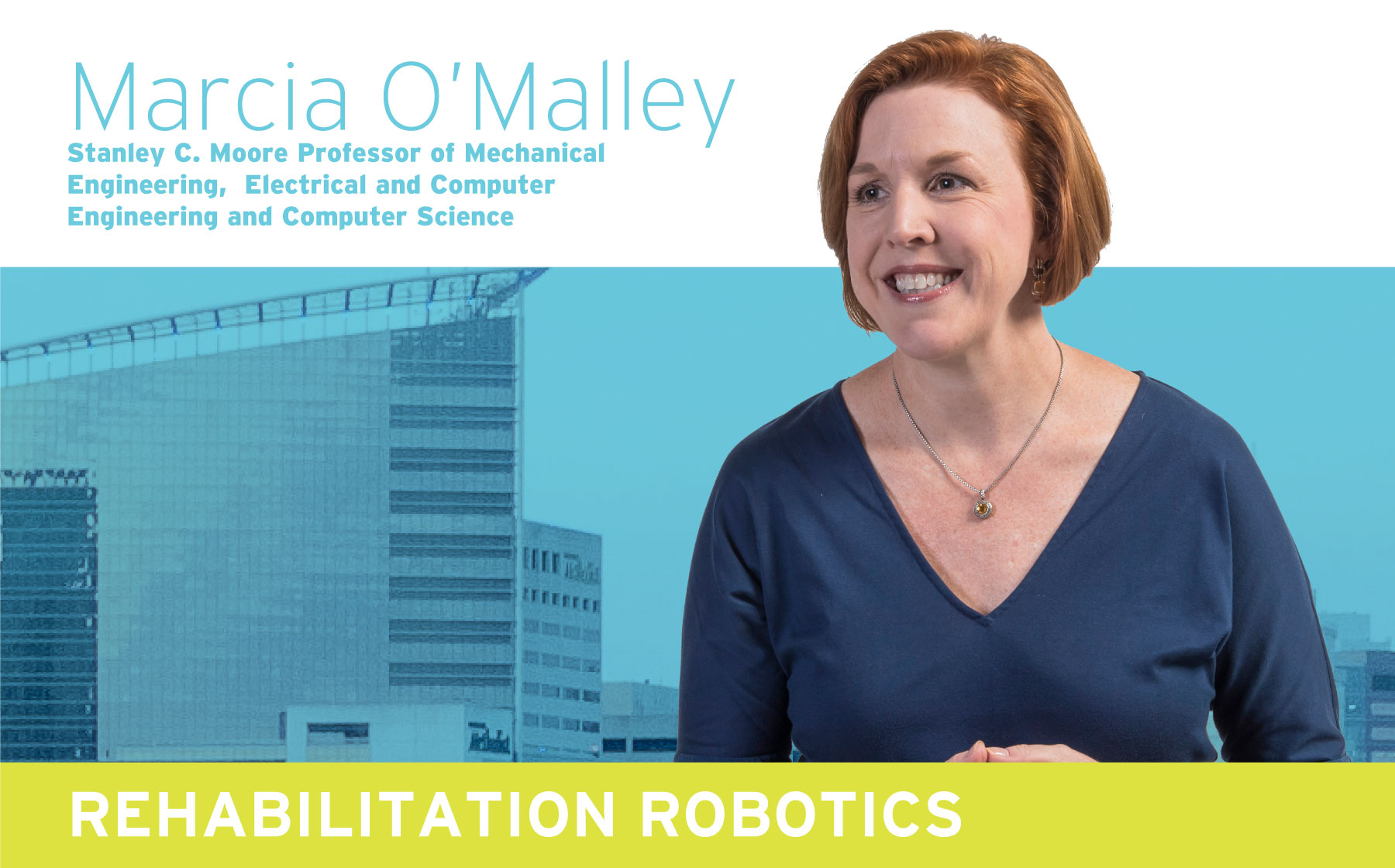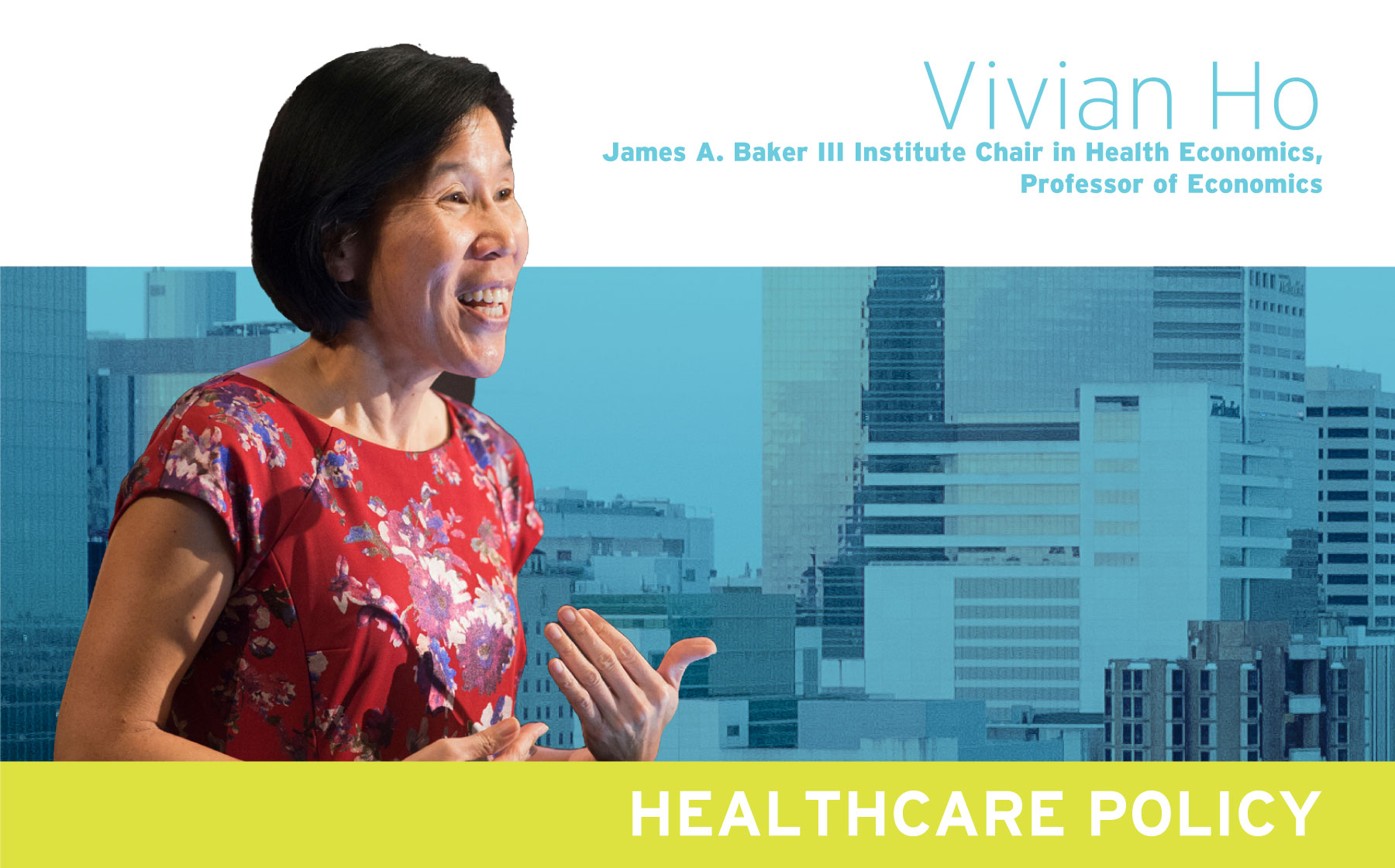Situated against the backdrop of the Texas Medical Center, Rice University is playing a vital role in solving critical challenges in medicine, healthcare and public policy. Rice faculty are not just thinking about the future of health, they are researching, writing and testing tools, procedures and policies that will directly affect the health of our families and communities in the foreseeable future. We asked five Rice faculty members to envision the future of health within their own fields. Here are some things to be aware of, to look out for and to anticipate.

In the Biomaterials Lab, 3D printing is a tool that has revolutionized the way we think about tissue engineering. We can now create devices we call scaffolds that support live cell and tissue growth with intricate architectural designs. Material advancements also enable the inclusion of chemical factors in these scaffolds that direct the growth and maturation of cells into smaller functional versions of organs. We call these organoids.
Already, 3D printed organoids have propelled our understanding of human physiology. They allow us to model biological phenomena, such as the effects of drugs on organs or how cancer progresses. In the next decade, we will see the use of 3D-printed organoids in laboratory settings to accelerate this type of laboratory research.
Over the next 25 years, this research will evolve so we are not only modeling tissues in the lab, but we are fabricating new, living tissues to replace diseased and failing organs and tissues in patients. The way we treat patients will fundamentally be altered as we biofabricate individual solutions at the point-of-care.

The practice of health care is becoming more technological and data-driven, but the core concern should always be with the patient, the human experience of care, and the power of human connection for healing. Medical Humanities can help us reimagine the ways that patients will experience health and illness in a care delivery setting of the future that is heavily mediated by technologies such as virtual reality, digital therapeutics and artificial intelligence.
In the next 10 years, every pre-med student at Rice will see the Medical Humanities program as a vital component of their training to become future leaders who create a more humane, equitable and patient-centered vision of healthcare. Our students will learn how to put the human experience at the center of their approach to medicine, whether through data science, bioengineering or bioethics. Medical Humanities will train future clinicians to work collaboratively with technology developers to tackle the challenging question of how to prioritize the human experience within health technology development, ensuring that ethics, communication and transparency become priorities in the future of health.

Using robotic devices for physical rehabilitation to deliver high repetition, high intensity therapy offers enormous potential for patient recovery. While robotic rehabilitation devices, like exoskeletons, are available in modern medical centers now, the declining cost of these devices will result in greater proliferation over the next 10 years — meaning that the next generation of physical and occupational therapists will be trained to include this technology in their delivery of care. Advances in sensing and data science will produce personalized treatment options, enabling robotic therapy to be tailored to individual needs and immediately respond to the changing abilities of the patient.
The longer game for robotics and rehabilitation involves a deeper understanding of brain and spinal cord plasticity and the mechanics of meaningful recovery. Work is being done now using brain imaging and robotic-driven assessments to pinpoint who will respond best to therapy. In the next 25 years, advances in neuroscience will give greater insight into how the brain controls movement and recovers from injury, allowing engineers to design tools that will restore independence to these populations.

Healthcare spending comprises close to 20% of our economy, but I don’t see policy makers achieving significant headway on affordability and access to healthcare in the next 10 years. The consolidation of providers and insurers, along with aggressive practices by drug companies will continue to drive cost growth, and policy makers touting Medicare-for-all will be blocked by powerful forces within the industry. The hospitals, physicians, insurers, device makers and drug companies receiving high revenues will fight hard to preserve their wealth. While some checks on rising costs will be implemented, access to healthcare will mirror the widening income inequality in our country. I’m more optimistic about prospects 30 years from now. Advances in information technology and artificial intelligence will make diagnostics and treatments for many conditions more accessible. These knowledge gains will lower the costs of providing care and draw more competitors into the market.

The future of urban health is integrated, geocoded and data assessed in real-time. These advances will be combined with wrap-around services to help address social causes of health and illness. Imagine this scenario: In 2029, a young man shuffles into the ER, holding his chest, unable to speak to the triage nurse. She scans his identity band, and his full medical history comes up on her tablet. She can see immediately that it’s probably an asthma attack, and he nods his head. After he’s treated, a clerk walks him through a 10-minute assessment for his medical and social needs, and scans his inhaler’s GPS chip to see where he was when symptoms began. At the same time, across town in the Public Health department, an alert sounds. “Ten acute asthma cases in our ERs right now – all from a site east of downtown,” says the system manager. She dispatches a team from Pollution Control Services to go investigate the source of the attacks. Meanwhile, a social worker assists the young man in applying for Medicaid and helps him chart a bus route to his closest pharmacy – so he won’t run out of his medicine next time.




